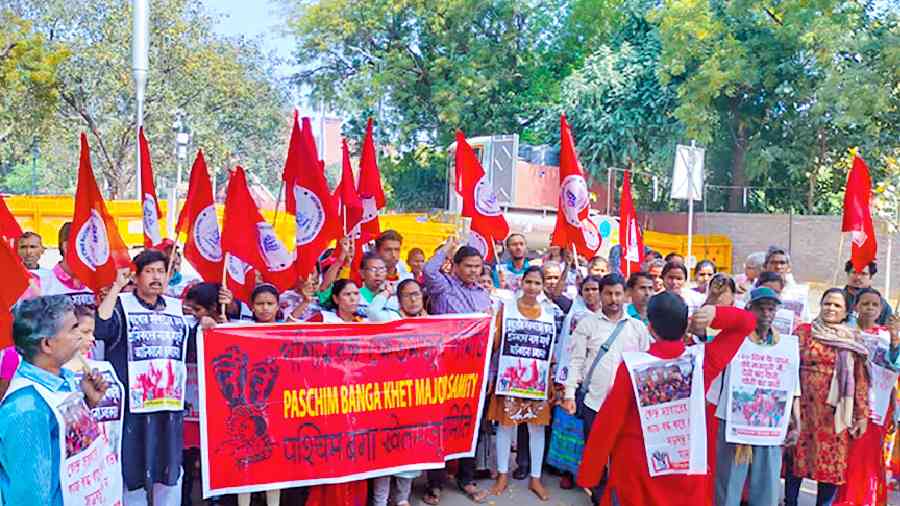Dileep Mandal of Bikha panchayat in Bihar’s Araria district worked for six days on a road project under the Mahatma Gandhi National Rural Employment Guarantee Act (MGNREGA) last month but the government paid him no wage as he had not linked his bank account with the new Aadhaar-enabled payment system.
The NarendraModi government has made an Aadhaar-routed payment system mandatory for the disbursal of wages under the 100-day job scheme, in a move decried as “reckless” and one that would shut out the majority of workers from the NREGA.
According to the government’s own records furnished in Parliament on Wednesday, only 47 per cent of workers under the NREGA have their bank accounts linked to the Aadhaar-enabled payment system.
Mandal said six other workers at the same project did not comply with the new requirement of linking bank accounts with the Aadhaar Enabled Payment System (ABPS). Of the 47 workers who took part in the project, 40 got their wages as they complied.
The Union ministry of rural development (MoRD) has told the states that wage payment would be done only to the ABPS-linked accounts.
The wage advice documents issued by the project implementers to the government for release of funds mention only those whose bank account and Aadhaar are seeded.
Mandal said the officials of Palasi block included only those names in the wage advice who were ABPS-compliant.
“I do not know if we will get paid. The block officials dropped our names. We are clueless,” he said.
Ashis Ranjan, a member of the Jan Jagaran Sakti Sangathan which works with MGNREGA workers to help them sort out their problems, on Tuesday briefed Opposition MPs about the scheme coming under attack from the Narendra Modi government.
He said the names of hundreds of workers were being dropped at the time of generating the wage advice.
“By making the ABPS the only payment system, the government is going to deny wages to genuine workers,” Ranjan said.
Denial of wages is not the only issue that has agitated the workers. The MoRD has made attendance registration through an online app, the National Mobile Monitoring Software (NMMS), mandatory from January this year.
Although the MoRD has said the measure aims to bring transparency in the implementation of the MGNREGA, which provides up to 100 days’ unskilled work to every rural family in a year, many workers are protesting non-payment of wages due to failure to register attendance because of patchy Internet connectivity.
James Heranj, convenor of the civil society group Jharkhand NREGA Watch, cited before the Opposition MPs an instance of duplication of attendance under the NMMS. He showed how one picture had been used to mark attendance for two pond-digging projects in Jharkhand’s West Singhbhum district in January.
Under the NMMS, the supervisor of projects under the MGNREGA has to upload pictures of workers at work sites twice a day. The pictures would help proper monitoring of the scheme, the MoRD has told Parliament in written replies.
Heranj said the NMMS had on the one hand failed to check duplications in the implementation of the MGNREGA, and on the other created hurdles in registration of attendance.
Congress MPs Digvijaya Singh, Kumar Ketkar and Uttam K. Reddy, CPM’s A.A. Rahim, Trinamul’s Jawhar Sircar, DMK’s Senthil Kumar, CPI’s Binoy Viswam and Aam Admi Party’s Sanjay Singh assured the civil society groups that they would raise the MGNREGA problems in the ongoing session of Parliament.
The Telegraph sent an email to MoRD secretary Shailesh K. Singh asking about the allegations. His response is awaited.











